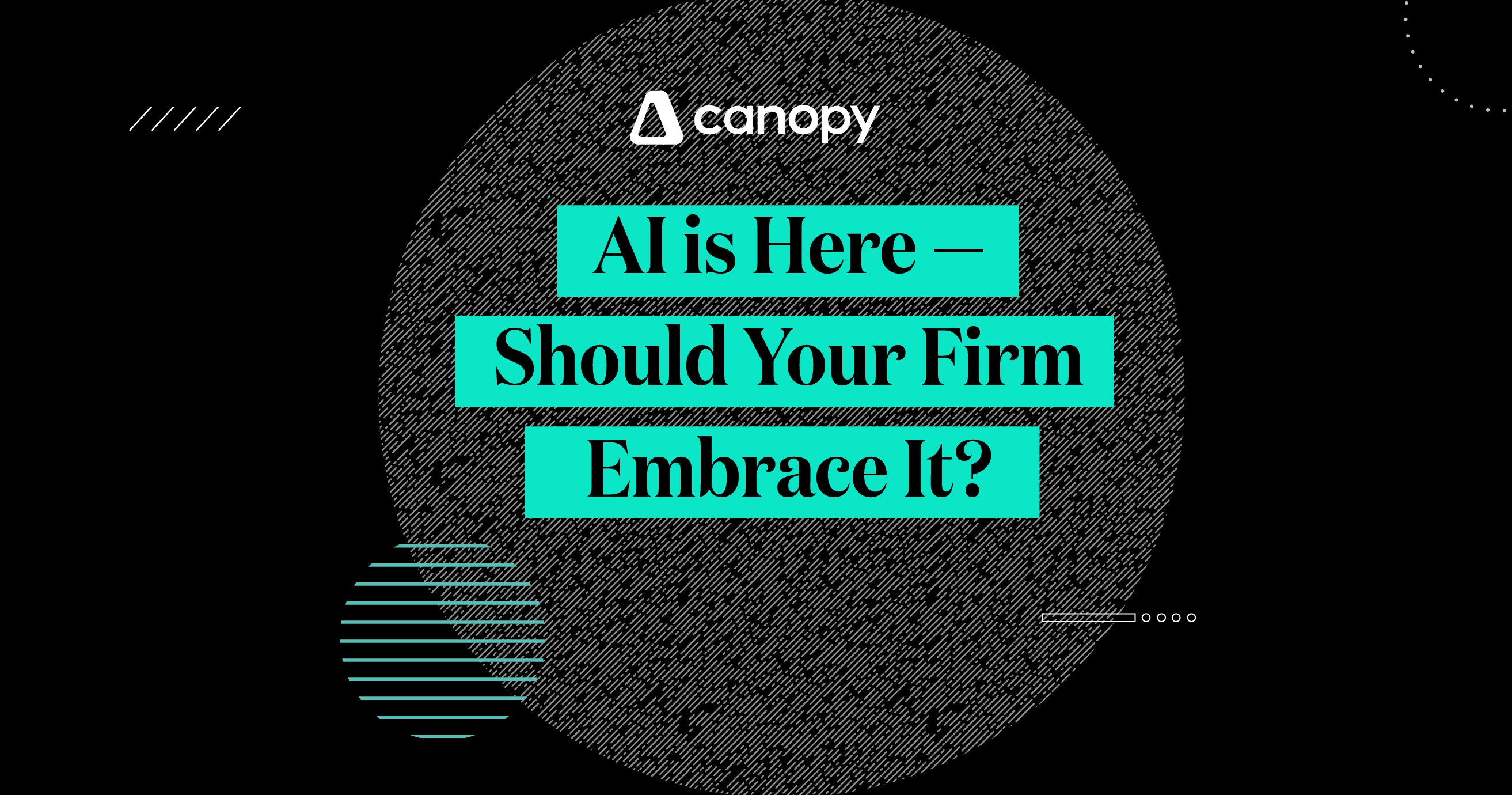There's no doubt that the accounting industry is changing at a rapid clip. The integration of technology, specifically artificial intelligence (AI) and automation, means that accounting professionals must adapt and adopt tools to stay relevant. To that end, here's a look at how embracing AI and automation can help accountants work smart, not harder.
AI Automation: The Accountants Gamechanger
Accounting work is detail-oriented and tedious, with no room for mistakes. However, AI tools can introduce precision and speed into daily tasks such as data entry and reconciliation. Fewer hours spent on this work means greater bandwidth for more lucrative facets of growing and accounting practice, like strategic planning, analysis, and relationship building.
While the human element is essential in the accountant-client relationship, there are liabilities and limitations to what people can do. AI-based accounting software can act as a second set of eyes, detecting patterns and anomalies. In this way, it can help professionals catch issues before they become larger ones.
Beyond real-time applications, AI-based software can help accountants better plan for the future and empower clients with timely insights, like in the case of global tax firm KPMG. For example, AI can help tax professionals better gauge the impact of new tax laws or financial regulations. This custom guidance can help clients plan for tax liabilities, identify growth opportunities, and be more nimble.
What Are the Limitations of AI?
While automation offers many benefits, accountants should be OK with job security — AI can't replace certain traits that people bring to the table. The less automatable aspects of accounting include:
Complex decision-making and critical thinking: Accounting tasks often involve making choices based on incomplete or uncertain information, such as applying specific accounting policies, valuing assets, or estimating asset lifespans. AI needs help to replicate and apply deep domain knowledge and situation judgment.
Regulatory interpretation and compliance: Accountants must interpret and apply complex, ever-changing regulations, laws, and accounting standards. AI can introduce sophistication in that it can analyze and track regulatory changes. However, human judgment and expertise cannot be replaced, as accountants tackle compliance and navigate nuances across jurisdictions.
Ethical considerations: Accountants are bound by ethical standards, confidentiality, and acting in the best interests of their clients. While AI can support ethical decision-making by providing information, humans must know when to raise concerns about potential conflicts of interest.
Relationship management and communication: Accountants must often communicate complex financial information clearly and understandably to clients, management, and stakeholders. Building trust and maintaining relationships requires empathy, active listening, and interpersonal skills that AI cannot yet deliver.
Strategic advisory: The modern accountant acts as a consultant. Clients look to them for strategic advice. For instance, they might offer insight into growth opportunities, manage risks, and optimize financial performance. Actionable knowledge requires understanding the client's business context, industry trends, and competitive landscape.
Getting Started with AI
AI can potentially transform your practice — if you're open to change. Firms don't need to automate their practice overnight. Instead, it can be a gradual process that considers user feedback and preferences. Here's how to get started with automation.
-
Take inventory of current processes and pain points.
Conduct a thorough assessment of the firm's existing accounting processes, workflows, and pain points. Identify areas where AI could bring the most value, such as repetitive tasks, data entry, or data analysis.
- Do your homework.
Only some AI tools are the right ones for your organization. When evaluating options, consider scalability, integration capabilities, ease of use, and security. Pilot a few solutions before finalizing one.
It's best to begin with small, low-risk projects to gain confidence and identify potential challenges. Think: automating expense categorization or streamlining invoice processing.
- Set clear objectives.
Define specific and measurable objectives for implementing AI. Whether it's reducing manual data entry time, enhancing data accuracy, or providing better financial insights, having clear and actionable goals can help you evaluate whether automation is a worthy investment.
- Educate, engage, and empower staff.
Organize training sessions to introduce AI concepts, benefits, and how it will impact their roles. Encourage open communication to address concerns and garner buy-in for AI integration.
- Monitor and evaluate performance.
Introducing automation isn't a set-it-and-forget-it situation. Continuously monitor AI performance and its impact on the firm's processes. Measure key performance indicators (KPIs) against your predefined objectives. Regularly evaluate the cost-benefit ratio of the AI implementation.
Accountants are vital in upholding ethical standards, maintaining relationships, and offering strategic advisory services. As the accounting industry embraces AI, it's crucial to approach automation methodically. Firms can navigate the transformation by assessing processes, evaluating AI tools, setting objectives, empowering staff, and monitoring performance. Embracing AI boosts efficiency, accuracy, and financial insights, driving success in accounting practices.

Chris is a content manager for Canopy, joining the team with a combined eight years of experience as a copywriter, editor-in-chief, and content marketer. He's a skilled wordsmith and strategic thinker who shapes brand identity through compelling content and fosters a collaborative and innovative environment. With a passion for storytelling and a dedication to excellence, he is a driving force behind any company's success in content marketing. Champion of the Oxford comma.
READ MORE BY Chris






Get Our Latest Updates and News by Subscribing.
Join our email list for offers, and industry leading articles and content.